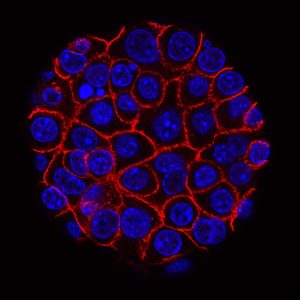
Breast cancer cells can be transformed into fat cells using combination therapy, study shows
pharmafile | January 16, 2019 | News story | Research and Development | Cancer, EMT, breast cancer, cells, oncology, tumours
An innovative cancer treatment can turn malignant breast cancer cells into fat cells, thus preventing the formation of metastases (the process through which cancer spreads) in mice, according to a study published in the journal Cancer Cell.
The discovery came as researchers at the University of Basel’s Department of Biomedicine explored the high degree of plasticity exhibited by tumour cells, which allows them to adapt themselves and thus spread around the body.
The process, a cellular process that is central to embryonic development, is reactivated in tumour cells. As such, the tumour cells gain the ability to alter their molecular properties and thus break away from the tumour and spread around the body.
This process, called epithelial-mesenchymal transition (EMT), is exploited by tumour cells which then leave the tumour and form metastases in distant organs around the body.
However the researchers were able to exploit this plasticity and thus forced breast cancer cells to convert into fat cells. This stops the tumour from invading neighbouring tissue and entering the bloodstream and thus means no further metastases can form.
The researchers were able to do this using a combination of two drugs, Rosiglitazone, which is widely used to treat patients with diabetes, and Trametinib, which inhibits the growth and spread of cancer cells, in mice.
Professor Gerhard Christofori commented: “In the future, this innovative therapeutic approach could be used in combination with conventional chemotherapy to suppress both primary tumour growth and the formation of deadly metastases.”
The research also demonstrates that tumour cells exhibit a high degree of cell plasticity in a similar manner to stem cells – a quality which can be exploited for therapeutic purposes.
Louis Goss
Related Content

Geneos Therapeutics shares data from phase 1/2 trial for cancer vaccine
Geneos Therapeutics has announced that it has published positive safety, immunogenicity and efficacy data from …

FDA accepts BLA for AstraZeneca and Daiichi Sankyo’s datopotamab deruxtecan for breast cancer treatment
AstraZeneca and Daiichi Sankyo have announced that their Biologics License Application (BLA) for datopotamab deruxtecan …

Curve Therapeutics’ CSO publishes research on HIF inhibition for cancer treatment
Curve Therapeutics has announced that its chief scientific officer, Professor Ali Tavassoli has published research …








